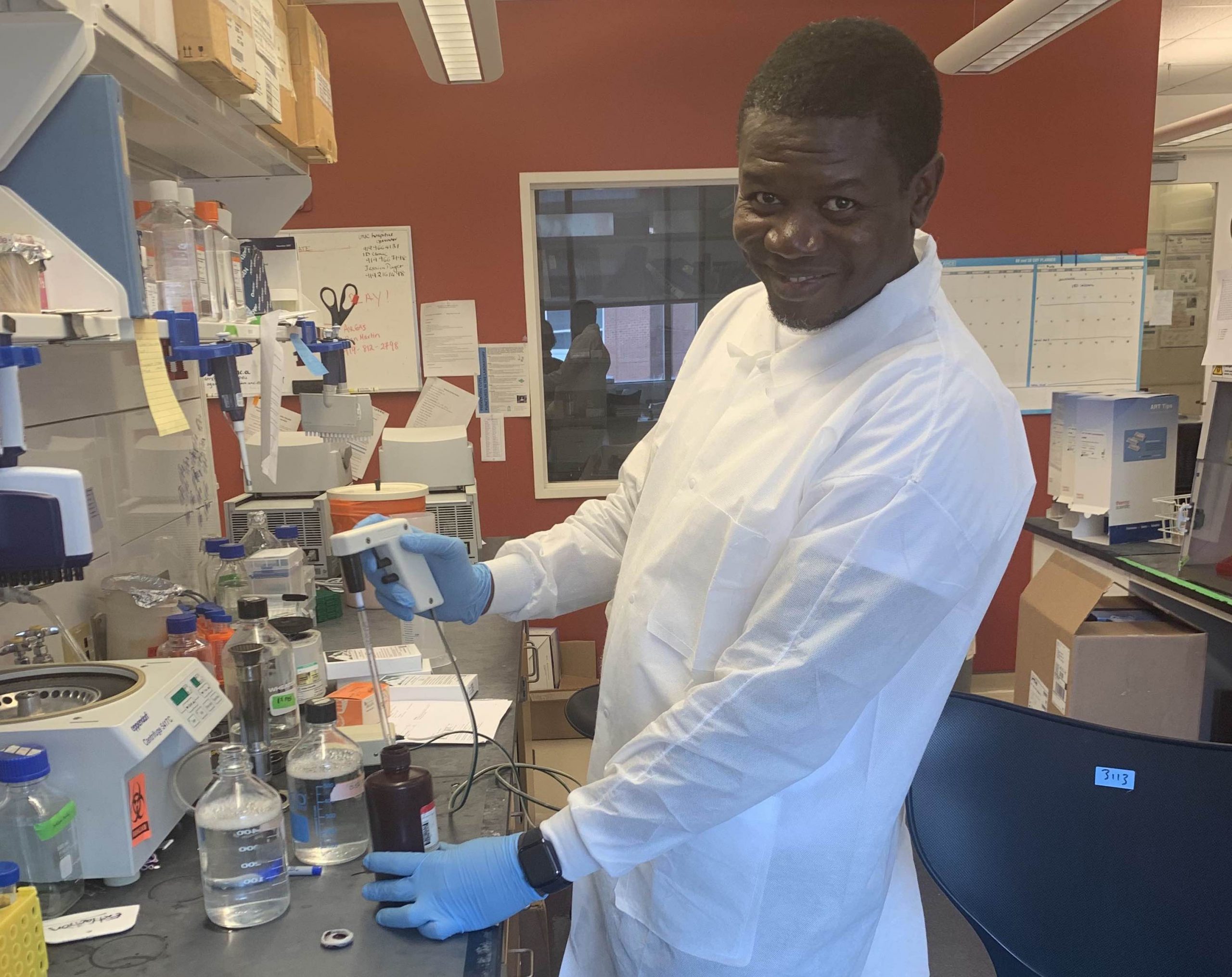
The year was 1993. Alexis Mwanza, then 17, found himself huddled on top of a train, fleeing violence in his home town in the Democratic Republic of Congo by leading nine of his family members 500 miles away to Mbuji Mayi. As a displaced refugee in that city, Mwanza watched Red Cross workers and other helpers and knew that he wanted to pursue a profession where he could help people. Ten years later, he graduated as a general practitioner from the University of Mbuji Mayi’s medical school.
In the fall of 2021, Mwanza begins a fully funded master’s in public health program at UNC’s Gillings School of Global Public Health, including field work in the DRC, thanks to a Rotary Peace Fellowship. The fellowships are awarded to leaders who are committed to community and international service and the pursuit of peace. Mwanza hopes to return to Africa for his work. “I’d like to end up somewhere where I can be helpful, where I can contribute to improving health systems,” he says.
Mwanza moved to the Research Triangle in 2018. He enrolled in English classes (English is his sixth language) at Durham Technical Community College and took a job at Trader Joe’s. “I wanted to be somewhere where I could talk with people, it was very good for my English,” he says of the grocery job. “I also learned a lot about Americans and about American food.”
The Institute’s Jonathan Parr, MD, MPH, met Mwanza at a conference about malaria in the DRC. Parr’s research focuses on the infectious diseases of poverty, with several projects based in the DRC. He helped to find a position for Mwanza in the Infectious Diseases Epidemiology and Ecology Lab, or IDEEL, where Parr works.
“Alexis’s story is inspiring because it illustrates one of our core missions at IDEEL and at the Institute for Global Health and Infectious Diseases,” says Parr. “Only by identifying and supporting talented colleagues from the places where we work can we have a meaningful and lasting impact on the health of these communities.”
As Mwanza writes in his Rotary fellowship application, his first job after medical school was working for the DRC government at a reference hospital in an urban center. “Our hospital resembled a health clinic in a faraway village,” he writes. “Although we had one set of surgery tools, we did not have electricity, running water, or enough beds, which meant patients slept on the ground. As a public hospital, we were supposed to be paid by the government, but instead we had to collect fees from patients; when they were too poor, we worked without pay.”
He later worked as a health zone chief, as a provincial coordinator of a malaria prevention initiative in the DRC, as a field director for Ebola research, and as a technical advisor managing drug using DHIS2. Since moving to the Research Triangle area, Mwanza has observed what he can about how the community health worker system operates in North Carolina, hoping to take new ideas back to Africa when he returns.
“I am so pleased for Alexis and the opportunities he is going to have moving forward,” says Jonathan Juliano, MD, MSPH, who supervises Mwanza at IDEEL. ” The challenges he has overcome to make it to where he is are remarkable. He is extremely talented and his Rotary Peace Fellowship is well deserved.”
